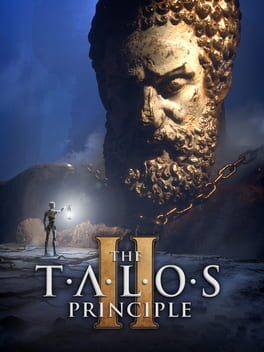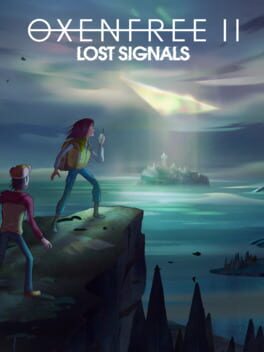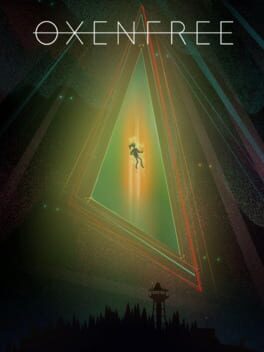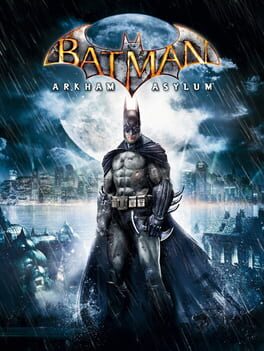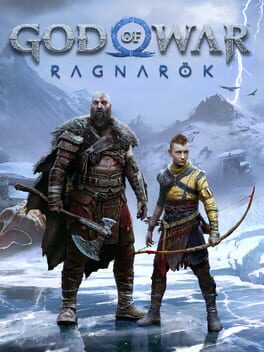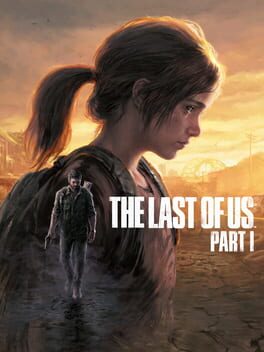XOArama
2022
Man, I really loved this game. I hadn't heard all too much about it beforehand but it seemed like the kind of game I would enjoy. With games like Soma and movies like Ghost in the Shell and Blade Runner being some of my favorite pieces of media for the topics and philosophies they discuss, I was bound to enjoy this.
The game is played as a classic survival horror like Resident Evil or Silent Hill being the games its compared to the most, and while not having played either of those I can definitely see the inspiration. The gameplay of this game is very solidly made and although probably the tamest part it was always enjoyable and as fun to play as a survival horror can be.
Where the game really gets me is the story itself and its presentation of said story. Nothing in the game is really laid out for you, if you don't do a little digging and connect some dots you can come out of it not really understanding anything that happened. Now I will say even with reading everything I came across I probably understood less than half of the overall story even after a second playthrough for 100%.
This kind of storytelling isn't for everyone but its personally one of my favorites and you can tell that everything is very thought out on what information is displayed and when, its not ambiguous to cover up for bad storytelling like some games but to elevate the story even more. After watching several hours of lore and theory videos I'd say I have a solid grasp on what the game was trying to say, or at least an interpretation of it and I just love it.
There are some many layers upon layers and symbolism in this game its impossible to list it all. The presentation of the game is also beautiful, it goes for an older type of aesthetic, with screen glitches and even a toggleable CRT effect that I chose to play with. All these little details in the game and the way its presented add to the horror vibe in a really cool way and they also have implications on the story itself if you're looking for it.
Overall I really loved the game and I think its safe to say it will end up in my favorites as its just a combination of many things that I personally really love and while I don't think its a 100% perfect game its perfect to me.
The game is played as a classic survival horror like Resident Evil or Silent Hill being the games its compared to the most, and while not having played either of those I can definitely see the inspiration. The gameplay of this game is very solidly made and although probably the tamest part it was always enjoyable and as fun to play as a survival horror can be.
Where the game really gets me is the story itself and its presentation of said story. Nothing in the game is really laid out for you, if you don't do a little digging and connect some dots you can come out of it not really understanding anything that happened. Now I will say even with reading everything I came across I probably understood less than half of the overall story even after a second playthrough for 100%.
This kind of storytelling isn't for everyone but its personally one of my favorites and you can tell that everything is very thought out on what information is displayed and when, its not ambiguous to cover up for bad storytelling like some games but to elevate the story even more. After watching several hours of lore and theory videos I'd say I have a solid grasp on what the game was trying to say, or at least an interpretation of it and I just love it.
There are some many layers upon layers and symbolism in this game its impossible to list it all. The presentation of the game is also beautiful, it goes for an older type of aesthetic, with screen glitches and even a toggleable CRT effect that I chose to play with. All these little details in the game and the way its presented add to the horror vibe in a really cool way and they also have implications on the story itself if you're looking for it.
Overall I really loved the game and I think its safe to say it will end up in my favorites as its just a combination of many things that I personally really love and while I don't think its a 100% perfect game its perfect to me.
2021
Kept getting told I needed to play this game. Not a huge fan of card games but I kept getting told it was a lot more than that. Now that I've finally took the plunge I've got to say its prit near a masterpiece. For starters the gameplay is really fun and very well designed. Every encounter is worked out perfectly down to a tee and even for someone like me who's not a huge fan of card games it was very fun and engaging to play. I feel like a big contributing factor to that is the games presentation, particularly in the first third. It draws you in right off the bat with the eerie cabin setting and your mysterious combatant and just throws things at you that make you question what's really going on and the only way to find out is to keep on going. It's really got some of the best presentation and vibes I've seen in a game ever. Then there is the overarching story itself, the lore of the game and its inhabitants, the story of Lucky Carder, and the dark meaning beneath it all, its a joy to unravel and learn more about the mysteries beneath it all. I've still got to get around to playing some of Kacee's Mod and get some more of that juicy lore but the main game itself was a delight and I can't wait to see more from Daniel Mullins.
2024
This is my third Persona game, along with many others I'm sure. I'd played a little bit of the original but heard rumors of a remake, so I decided to wait. I think this was a really good entry in the series. The core themes of this game are definitely the most mature out of the Persona games, and I think it works well for it.
I think this has some of the best characters in a Persona game, mainly Aigis and the main character. Their arcs are really unique, and Makoto's ends beautifully. The main group is pretty nice. I see complaints sometimes that they don't feel like friends, but I don't know how you can get to the end of the game and still think that; the bonds they share are obvious.
The side social links are almost all pretty good, with a couple of outliers. The music, as usual, is a bop. I think they did a good job with most of the songs; a couple are still worse than the original, but they also elevate others above the originals.
Tartarus itself is still plain and not really too connected to the story compared to the dungeons and palaces in Persona 4 and 5.
Overall, I really enjoyed my time playing this game, and I will be waiting for The Answer to release.
I think this has some of the best characters in a Persona game, mainly Aigis and the main character. Their arcs are really unique, and Makoto's ends beautifully. The main group is pretty nice. I see complaints sometimes that they don't feel like friends, but I don't know how you can get to the end of the game and still think that; the bonds they share are obvious.
The side social links are almost all pretty good, with a couple of outliers. The music, as usual, is a bop. I think they did a good job with most of the songs; a couple are still worse than the original, but they also elevate others above the originals.
Tartarus itself is still plain and not really too connected to the story compared to the dungeons and palaces in Persona 4 and 5.
Overall, I really enjoyed my time playing this game, and I will be waiting for The Answer to release.
The Talos Principle 2 had had a lot of hype to live up to for fans of the first game, a game that is one of my all-time favorite puzzle games. The first entry seamlessly blended philosophy and puzzles, delivering an experience that never failed to captivate. With high expectations, I eagerly dove into The Talos Principle 2, anticipating the promised improvements over its predecessor.
The visual upgrade in The Talos Principle 2 is unmistakable. Featuring beautiful next-gen graphics and expansive open-world areas for each group of puzzles, it's evident that the studio has made significant strides since the first game. However, this visual splendor comes with a drawback. Navigating the vast landscapes between puzzles, while aesthetically pleasing, became a tedious task, distancing me from the immersive puzzle-solving experience I was craving.
The narrative in The Talos Principle 2 is ambitious, weaving the tales of multiple characters into an overarching story. However, the delivery left me conflicted. Dialogues and interactions felt like an information overload, hindering my connection with the characters and the plot. The desire to be a completionist clashed with a growing disinterest in the narrative, turning the experience into more of a chore than an engaging story. The main story, while solid, could benefit from a more organic presentation.
The puzzle mechanics, a cornerstone of the series, introduced new tools and variations that brought freshness to the experience. The initial progression felt smooth, with new puzzle elements seamlessly integrated into each world. However, a peculiar shift occurred; as soon as the difficulty increased, the area concluded, and I found myself back in a new zone where the difficulty climb started from the bottom again. The puzzles themselves also didn't feel as expansive as some encountered in the first game, making these ones seem comparatively smaller. The lack of consistent challenge detracted from the sense of accomplishment I found in the first game. Despite enjoying the puzzles individually, external factors began overshadowing the joy of problem-solving.
In conclusion, The Talos Principle 2 stands out as a visually stunning and narratively ambitious sequel. Unfortunately, it falls short of achieving the sublime balance found in its predecessor. While the puzzles maintain a level of enjoyment, the excessive narrative and burdensome open-world traversal hinder the overall experience. As a fan of the first game, I couldn't shake the feeling that the sequel sacrificed the tight focus of its predecessor in favor of a grander scale, losing some of the magic in the process.
The visual upgrade in The Talos Principle 2 is unmistakable. Featuring beautiful next-gen graphics and expansive open-world areas for each group of puzzles, it's evident that the studio has made significant strides since the first game. However, this visual splendor comes with a drawback. Navigating the vast landscapes between puzzles, while aesthetically pleasing, became a tedious task, distancing me from the immersive puzzle-solving experience I was craving.
The narrative in The Talos Principle 2 is ambitious, weaving the tales of multiple characters into an overarching story. However, the delivery left me conflicted. Dialogues and interactions felt like an information overload, hindering my connection with the characters and the plot. The desire to be a completionist clashed with a growing disinterest in the narrative, turning the experience into more of a chore than an engaging story. The main story, while solid, could benefit from a more organic presentation.
The puzzle mechanics, a cornerstone of the series, introduced new tools and variations that brought freshness to the experience. The initial progression felt smooth, with new puzzle elements seamlessly integrated into each world. However, a peculiar shift occurred; as soon as the difficulty increased, the area concluded, and I found myself back in a new zone where the difficulty climb started from the bottom again. The puzzles themselves also didn't feel as expansive as some encountered in the first game, making these ones seem comparatively smaller. The lack of consistent challenge detracted from the sense of accomplishment I found in the first game. Despite enjoying the puzzles individually, external factors began overshadowing the joy of problem-solving.
In conclusion, The Talos Principle 2 stands out as a visually stunning and narratively ambitious sequel. Unfortunately, it falls short of achieving the sublime balance found in its predecessor. While the puzzles maintain a level of enjoyment, the excessive narrative and burdensome open-world traversal hinder the overall experience. As a fan of the first game, I couldn't shake the feeling that the sequel sacrificed the tight focus of its predecessor in favor of a grander scale, losing some of the magic in the process.
2023
This review contains spoilers
I fondly remember the first Alan Wake game, having played it a couple of years ago. Like many fans, I eagerly awaited the continuation of the gripping narrative. Remedy's subsequent release, Control, only fueled my anticipation with its intriguing ties to the Alan Wake universe. Now that Alan Wake 2 is finally here, I can confidently say that it not only met but exceeded my expectations.
Alan Wake 2 boasts breathtaking visuals, with meticulously designed areas that create a stark contrast between the overworld and the ominous dark place. The execution of the dark place is particularly commendable, capturing an atmosphere that perfectly aligns with the game's eerie narrative.
The narrative introduces the character Saga, adding a refreshing dynamic by allowing players to switch between the perspectives of two characters. This approach injects vitality into the storytelling, keeping the experience engaging and unpredictable. The inclusion of Saga feels like a well-crafted addition, contributing to the overall richness of the plot.
The gameplay in Alan Wake 2, while not overly complex, is solid and provides a diverse set of options. The unique gameplay elements, such as Saga's mind place and the case board, enhance the overall experience, making players active participants in the characters' thoughts. The scene-switching for Alan, while not leading to drastically different outcomes, introduces a captivating concept that keeps the gameplay experience fresh and enjoyable.
While the overall gameplay experience is stellar, the use of shadows in the dark place, where some shadows turn out to be fake, can become a bit frustrating—especially as their numbers increase towards the end.
Overall Alan Wake 2 is a masterpiece that effortlessly combines stunning visuals, compelling storytelling, and innovative gameplay elements. It exceeded my expectations, leaving me eagerly anticipating the upcoming DLCs and diving into new game plus to explore more of this captivating universe.
Alan Wake 2 boasts breathtaking visuals, with meticulously designed areas that create a stark contrast between the overworld and the ominous dark place. The execution of the dark place is particularly commendable, capturing an atmosphere that perfectly aligns with the game's eerie narrative.
The narrative introduces the character Saga, adding a refreshing dynamic by allowing players to switch between the perspectives of two characters. This approach injects vitality into the storytelling, keeping the experience engaging and unpredictable. The inclusion of Saga feels like a well-crafted addition, contributing to the overall richness of the plot.
The gameplay in Alan Wake 2, while not overly complex, is solid and provides a diverse set of options. The unique gameplay elements, such as Saga's mind place and the case board, enhance the overall experience, making players active participants in the characters' thoughts. The scene-switching for Alan, while not leading to drastically different outcomes, introduces a captivating concept that keeps the gameplay experience fresh and enjoyable.
While the overall gameplay experience is stellar, the use of shadows in the dark place, where some shadows turn out to be fake, can become a bit frustrating—especially as their numbers increase towards the end.
Overall Alan Wake 2 is a masterpiece that effortlessly combines stunning visuals, compelling storytelling, and innovative gameplay elements. It exceeded my expectations, leaving me eagerly anticipating the upcoming DLCs and diving into new game plus to explore more of this captivating universe.
This review contains spoilers
Spider-Man 2, despite a few missteps, manages to deliver an enjoyable experience, blending the familiar charm of its predecessor with a few exhilarating moments that hint at its potential.
The new traversal mechanics in Spider-Man 2, while not groundbreaking, manage to capture the essence of the series. Swinging around the city then breaking out into a glide to catch an air current puts a fun new twist on the traversal of the map. Navigating through the urban landscape feels effortless, making this aspect a standout positive.
The narrative, embracing well-known Spider-Man story arcs, provides a comfortable and engaging journey. Though playing it safe, the execution is competent, and the story succeeds in eliciting moments of nostalgia and excitement. Predictability aside, it manages to strike a balance between the familiar and the fresh.
Spider-Man 2's side content, or lack thereof, left much to be desired. The abundance of collectibles didn't compensate for the absence of engaging side missions. The Fire Cult missions hinted at a potential storyline but ultimately felt more like a prelude to future content, leaving the game feeling somewhat incomplete.
Spider-Man 2 is a commendable addition to the franchise, with its strengths lying in the web-slinging mechanics and a narrative that, while familiar, manages to hit the right notes. Despite a few shortcomings in side content, the game leaves room for growth, making it an enjoyable experience with the promise of even greater things to come.
The new traversal mechanics in Spider-Man 2, while not groundbreaking, manage to capture the essence of the series. Swinging around the city then breaking out into a glide to catch an air current puts a fun new twist on the traversal of the map. Navigating through the urban landscape feels effortless, making this aspect a standout positive.
The narrative, embracing well-known Spider-Man story arcs, provides a comfortable and engaging journey. Though playing it safe, the execution is competent, and the story succeeds in eliciting moments of nostalgia and excitement. Predictability aside, it manages to strike a balance between the familiar and the fresh.
Spider-Man 2's side content, or lack thereof, left much to be desired. The abundance of collectibles didn't compensate for the absence of engaging side missions. The Fire Cult missions hinted at a potential storyline but ultimately felt more like a prelude to future content, leaving the game feeling somewhat incomplete.
Spider-Man 2 is a commendable addition to the franchise, with its strengths lying in the web-slinging mechanics and a narrative that, while familiar, manages to hit the right notes. Despite a few shortcomings in side content, the game leaves room for growth, making it an enjoyable experience with the promise of even greater things to come.
As someone who was experiencing open-world game fatigue, I somewhat reluctantly dove into Star Wars Jedi: Survivor to avoid spoilers, deviating from my usual completionist playthrough. Despite my initial reservations, the game managed to both impress and leave me with mixed feelings.
Star Wars Jedi: Survivor stands as a notable upgrade from its predecessor, particularly in the narrative department. The storyline, a significant improvement over the first installment, drew me in, offering an engaging experience as I progressed through the main quests.
While the story excelled, some encounters with the main villain felt somewhat repetitive. The back-and-forth between planets, a necessary aspect of the open-world design, occasionally became a tedious task, dampening the overall flow of the narrative.
One of the highlights of the game lies in its combat mechanics. The introduction of new combat additions injected a refreshing level of depth and possibilities into the lightsaber-wielding action. Engaging in battles felt dynamic and satisfying, showcasing the game's commitment to refining its core gameplay elements.
The open-world format introduced various additions, but not all were equally successful. While the new combat possibilities were welcomed, some elements felt bloated, seemingly included for the sake of adding more content rather than enhancing the overall experience. This, in part, contributed to my decision to focus on main story content rather than completing every available task.
In the end, Star Wars Jedi: Survivor managed to provide an enjoyable experience. Despite the occasional drag in the open-world dynamics and the repetitive nature of certain boss fights, the thrill of swinging lightsabers and engaging in combat never lost its charm. The game successfully balanced evolution and familiarity, creating a solid entry into the Star Wars gaming universe.
Star Wars Jedi: Survivor stands as a notable upgrade from its predecessor, particularly in the narrative department. The storyline, a significant improvement over the first installment, drew me in, offering an engaging experience as I progressed through the main quests.
While the story excelled, some encounters with the main villain felt somewhat repetitive. The back-and-forth between planets, a necessary aspect of the open-world design, occasionally became a tedious task, dampening the overall flow of the narrative.
One of the highlights of the game lies in its combat mechanics. The introduction of new combat additions injected a refreshing level of depth and possibilities into the lightsaber-wielding action. Engaging in battles felt dynamic and satisfying, showcasing the game's commitment to refining its core gameplay elements.
The open-world format introduced various additions, but not all were equally successful. While the new combat possibilities were welcomed, some elements felt bloated, seemingly included for the sake of adding more content rather than enhancing the overall experience. This, in part, contributed to my decision to focus on main story content rather than completing every available task.
In the end, Star Wars Jedi: Survivor managed to provide an enjoyable experience. Despite the occasional drag in the open-world dynamics and the repetitive nature of certain boss fights, the thrill of swinging lightsabers and engaging in combat never lost its charm. The game successfully balanced evolution and familiarity, creating a solid entry into the Star Wars gaming universe.
2023
Planet of Lana unfolds as a delightful and concise gaming experience, offering a charming journey that never overstays its welcome.
Despite its brevity, Planet of Lana manages to weave an interesting narrative. The limited time given is utilized effectively, delivering a story that captivates and resonates. The game strikes a balance, ensuring the narrative unfolds at a pace that keeps players engaged without dragging on.
The puzzles in Planet of Lana are a highlight, striking a sweet spot between accessibility and enjoyment. While never too challenging, they provide a satisfying level of engagement, enhancing the overall experience without causing frustration. The simplicity of the puzzles contributes to the game's accessibility, making it an enjoyable playthrough for a wide audience.
The art style in Planet of Lana is a visual treat. The game boasts a beautiful aesthetic that enhances the overall atmosphere. However, a desire for a bit more diversity in the art style lingers, as the existing beauty could have been elevated even further with additional visual variety.
Planet of Lana, with its cute charm and enjoyable gameplay, stands as a testament to the idea that games need not be lengthy to be impactful. It offers a fun, wholesome experience that lingers positively in the player's memory, making it a worthwhile addition to the gaming library.
Despite its brevity, Planet of Lana manages to weave an interesting narrative. The limited time given is utilized effectively, delivering a story that captivates and resonates. The game strikes a balance, ensuring the narrative unfolds at a pace that keeps players engaged without dragging on.
The puzzles in Planet of Lana are a highlight, striking a sweet spot between accessibility and enjoyment. While never too challenging, they provide a satisfying level of engagement, enhancing the overall experience without causing frustration. The simplicity of the puzzles contributes to the game's accessibility, making it an enjoyable playthrough for a wide audience.
The art style in Planet of Lana is a visual treat. The game boasts a beautiful aesthetic that enhances the overall atmosphere. However, a desire for a bit more diversity in the art style lingers, as the existing beauty could have been elevated even further with additional visual variety.
Planet of Lana, with its cute charm and enjoyable gameplay, stands as a testament to the idea that games need not be lengthy to be impactful. It offers a fun, wholesome experience that lingers positively in the player's memory, making it a worthwhile addition to the gaming library.
Oxenfree 2 left me with a sense of disappointment, especially when compared to the captivating experience of its predecessor. While the game introduces some new elements, they feel more like attempts to compensate for what's missing rather than genuine enhancements.
One of the charms of the first game was the subtlety of its supernatural elements. In Oxenfree 2, however, it seemed like every scene was overloaded with ghosts and supernatural occurrences, diluting the intrigue that made the original so captivating. The subtlety was replaced with a more heavy-handed approach, and the result felt overdone and lacking the nuance that made the first game special.
While Jason is an acceptable character, being stuck with him throughout the entire game felt like a missed opportunity. Unlike the ensemble cast of the first game, where interactions were diverse and engaging, this installment limits the player to Jason and a few radio personalities who, for the most part, lack the depth and uniqueness that made the first game's characters memorable.
The attempt to tie Oxenfree 2 into the narrative of the first game felt forced and unnatural. While I understand the desire to create a connection, it seemed more like an obligatory nod than an organic continuation of the story. This element, unfortunately, detracted from the game's overall cohesiveness.
To its credit, the gameplay remains relatively consistent with the first game, and there are no complaints in that department. The mechanics that worked well in the original are preserved, maintaining a familiar and enjoyable experience.
Oxenfree 2, while not a bad game, struggles to live up to the expectations set by its predecessor. The supernatural elements feel overplayed, the main companion lacks the charisma of the original cast, and the forced tie-ins disrupt the natural flow of the narrative. While the gameplay remains solid, the overall experience falls short of the mark, leaving fans of the first game with a tinge of disappointment.
One of the charms of the first game was the subtlety of its supernatural elements. In Oxenfree 2, however, it seemed like every scene was overloaded with ghosts and supernatural occurrences, diluting the intrigue that made the original so captivating. The subtlety was replaced with a more heavy-handed approach, and the result felt overdone and lacking the nuance that made the first game special.
While Jason is an acceptable character, being stuck with him throughout the entire game felt like a missed opportunity. Unlike the ensemble cast of the first game, where interactions were diverse and engaging, this installment limits the player to Jason and a few radio personalities who, for the most part, lack the depth and uniqueness that made the first game's characters memorable.
The attempt to tie Oxenfree 2 into the narrative of the first game felt forced and unnatural. While I understand the desire to create a connection, it seemed more like an obligatory nod than an organic continuation of the story. This element, unfortunately, detracted from the game's overall cohesiveness.
To its credit, the gameplay remains relatively consistent with the first game, and there are no complaints in that department. The mechanics that worked well in the original are preserved, maintaining a familiar and enjoyable experience.
Oxenfree 2, while not a bad game, struggles to live up to the expectations set by its predecessor. The supernatural elements feel overplayed, the main companion lacks the charisma of the original cast, and the forced tie-ins disrupt the natural flow of the narrative. While the gameplay remains solid, the overall experience falls short of the mark, leaving fans of the first game with a tinge of disappointment.
2016
Embarking on a quick replay of Oxenfree in anticipation of the newly released second game was a delightful journey, reaffirming that this gem is just as good as remembered. The game's inherent sense of mystery coupled with well-crafted characters makes it an engaging experience that stands the test of time.
Oxenfree excels in weaving a captivating narrative shrouded in mystery. The unfolding events, the supernatural occurrences, and the atmospheric design contribute to an immersive experience that keeps players eagerly moving forward. The sense of not fully knowing what lies ahead adds a layer of intrigue that is both thrilling and enticing.
One of the game's notable strengths lies in its cast of characters, each boasting a full and distinct personality. Getting to know them becomes an enjoyable aspect of the gameplay. The depth of characterization adds nuance to the unfolding story, and the interactions between characters feel genuine, making the journey more emotionally resonant.
Oxenfree's impactful choices remain a standout feature. The decisions players make throughout the narrative feel substantial, influencing character relationships and altering the trajectory of the story. Even during a second playthrough, the game manages to introduce new additions and changes that breathe fresh life into the experience, encouraging exploration of different paths.
Oxenfree's enduring charm lies in its ability to balance mystery, engaging characters, and impactful choices. Whether preparing for the sequel or simply relishing the immersive narrative, Oxenfree proves that some games are timeless in their ability to captivate and entertain.
Oxenfree excels in weaving a captivating narrative shrouded in mystery. The unfolding events, the supernatural occurrences, and the atmospheric design contribute to an immersive experience that keeps players eagerly moving forward. The sense of not fully knowing what lies ahead adds a layer of intrigue that is both thrilling and enticing.
One of the game's notable strengths lies in its cast of characters, each boasting a full and distinct personality. Getting to know them becomes an enjoyable aspect of the gameplay. The depth of characterization adds nuance to the unfolding story, and the interactions between characters feel genuine, making the journey more emotionally resonant.
Oxenfree's impactful choices remain a standout feature. The decisions players make throughout the narrative feel substantial, influencing character relationships and altering the trajectory of the story. Even during a second playthrough, the game manages to introduce new additions and changes that breathe fresh life into the experience, encouraging exploration of different paths.
Oxenfree's enduring charm lies in its ability to balance mystery, engaging characters, and impactful choices. Whether preparing for the sequel or simply relishing the immersive narrative, Oxenfree proves that some games are timeless in their ability to captivate and entertain.
With some good improvements from Gen 1, and the addition of colour, this was a fun step up but it still feels very outdated. I enjoyed the pacing of the region and the fact we get to go through Kanto all over again in a new order was pretty cool. Still just a lot of quality of life improvements holding it back.
This was what I thought was my first time playing this game yet as I went through it a lot of it seemed familiar so I think I may have played this in the past and just forgot em about it. Anyways, although not a mainline Arkham game I still wanted to play this just to knock it off the list, while it’s similar to Arkham City I just felt it was a bit underwhelming? Everything is just good, feels very plain. I do like the portrayal of early Batman, especially after watching The Batman 2022 movie which is set in the same stage of the Batman’s career it was nice to draw some comparisons. Overall it was good but not something I’d be itching to replay or even talk about.
With Arkham City being my first Arkham game I never went back and played Arkham Asylum but I decided it was finally time I got to it. I quite enjoyed it and it’s held up pretty well. Really makes me appreciate what an upgrade Arkham City was in term of scale. I do appreciate the smaller scale of Asylum and it has its charm.
2022
This review contains spoilers
After the amazing game that was God of War 2018 the sequel was wildly hyped and I'd say it about lived up to it. Its a pretty good improvement to the first game and does most things better. I felt the exploration/open world sections were a bit worse than the first game but it was still good enough to make me want to do it all. Graphics while still beautiful are not as big as an improvement from the first game, due in part to them still releasing the game on the PS4. My only real gripe with the game is that I felt the story didn't really delve into the ending of the original game with the whole prophecy of Kratos dying and Atreus possibly killing him. Yes they mention it in this game and it is a threat that is constantly in the back of the mind but it never builds on it or toys with the idea in a main way which is a surprise since it was such a big point of the ending of the first one. While for some reason I had less of a drive to play this game non stop compared to when I played the first one I still think it is objectively a better game and I had a great time playing it.
After not having a PlayStation console to play the original game on, I ended up buying a subscription for PlayStation Now and played the game streamed from the original PS3 version to my PC and playing with an Xbox controller programmed to be recognized as a PS4 controller. While that was a suboptimal way to experience the game I still enjoyed it very much. Now current day I have a PS5 and the remake is announced and met with differing opinions over whether its needed or not. While I think the original remaster holds up just fine and this remake isn't needed, I still welcome it. So going from streaming it from a PS3 to my PC to now this remake, it was amazing all over again and then some. The graphics of the PS5 really brought the game to a new light and just helps bring one of the greatest games of all time to more people. I really enjoyed myself playing this again and in a different light this time as halfway through playing this game the HBO TV show based on the game came out so it was nice to compare and see things in a new light as I was playing through the second half. Overall its the same game but better than ever and it was an amazing time beginning to end.



